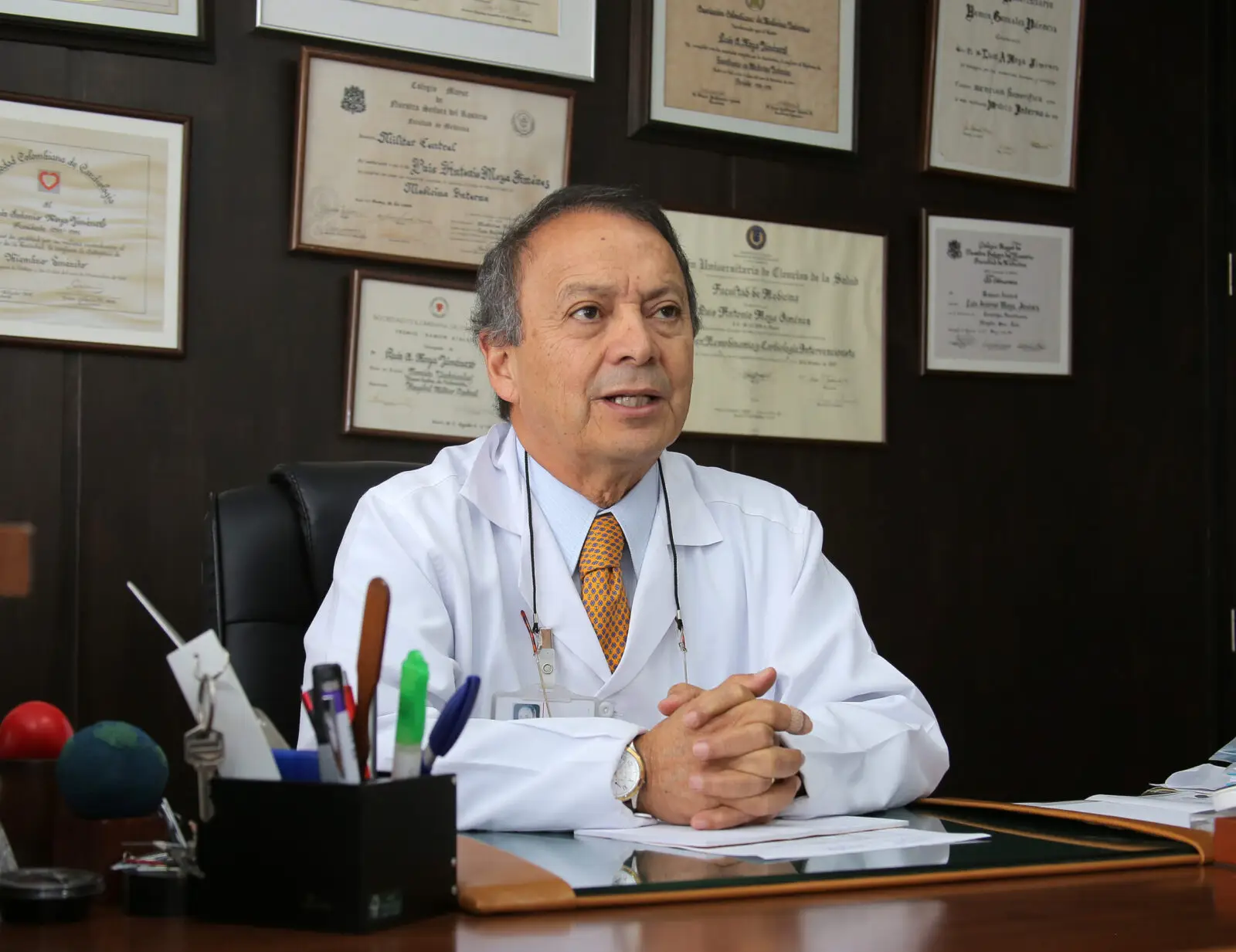Dr Luis Moya Jiménez
Founder and President of the Colombian League against Heart Disease and Hypertension
Colombia

Education is the most important motivation to lower the incidence of cardiovascular disease. Ever since I became a teacher, I’ve been of the opinion that healthcare professionals must involve their patients in the management of the disease. When a patient gets sick or does not remain healthy after treatment, it is often their fault because they neglect themselves and only go to the hospital when the disease is very advanced. This is something I have insisted on in the last 40 years of my professorship: patients must take responsibility for the management and treatment of their disease, and the only way of making the patients responsible is by giving them the knowledge and tools they need to understand their illness.
I have been in love with my profession for 40 years. I studied Medicine at Universidad Industrial de Santander (UIS) and I specialized in Internal Medicine at Universidad del Rosario in Bogotá, Colombia. I was initially going to be a gastroenterologist, but the cardiology field was experiencing a striking transformation at that moment —it was moving from being a passive profession to provide the instruments we needed to practice interventional cardiology— and I decided to study cardiology instead. During my time as a resident, I won the Ramón Atalaya National Cardiology Award, which served as a bridge to do my sub-specialization in haemodynamics and interventional cardiology where I had the opportunity to study under the tutelage of two icons of the world of cardiology, Dr. René Favaloro and Andreas Roland Grüntzig.
In 1989, I was elected president of the Colombian Society of Cardiology and I founded the Colombian League against Heart Disease and Hypertension (Liga Colombiana contra el Infarto y la Hipertensión). Together with other prominent cardiologists, we organized activities to raise awareness of heart health and determine the cardiovascular risk factors of the Colombian population. These activities, which we carried out for 11 years, allowed us to better understand the prevalence of cardiovascular disease and the lack of knowledge among the Colombian people. When I was elected president of the South American Society of Cardiology, I extended these initiatives to all of South America and supported the creation of World Hypertension Day (17 May) with the support of my colleagues in other countries.
After all these years, ignorance is still very much present among the population. That is the most painful thing to see when you have been working in this field for so long. I remember a 32-year-old patient that I had at the beginning of my career… he died of a left coronary artery trunk lesion. It was a time when the possibilities in the field of cardiology were limited, and seeing his wife and his young son waiting for the news was terrible. One does not get used to these situations. It still hurts to see all these patients, no matter their age, living with pathologies that could be prevented if we could get people to begin screenings from an early age.
The word cancer is more frightening than heart disease, and it turns out that the latter is the leading cause of death in the world. We doctors must emphasise this fact during consultations. We are becoming formulators: “you have this disease, take this medication and leave”. This way of providing “fast care” forgoes the importance of contact with the patient. We need to spend time with our patients to give them the tools they need to help themselves; an approach that I call “accountability with patient integration”. And we must not start with cardiovascular disease patients, but with teenagers, showing them how the heart works, what the arteries are and what happens if they get clogged.
We at the League organize educational activities where we ask participants if they know the risk factors for cardiovascular disease. Around 80-85% of the surveyed are not aware of them, and our initiatives are meant to reduce this number. In 2018, in Tunja, a city near Bogotá, the League organized free registrations and talks to the population, including children and high school students, with the aid of the mayor’s office. With these educational talks, we managed to reduce the lack of knowledge of around 45% of the Tunja population.
We need to take up the education of our doctors again and, together with technology, make our profession more humane. We have lost that approach in the interaction with our patients: for most professionals, paraclinical examinations such as echocardiography, resonance, tomography, etc., take precedence over dialogue, palpation, auscultation and proper questioning. We must go back to that human way of providing care. If we can do this by making our patients responsible, we will change the history of most worldwide diseases.